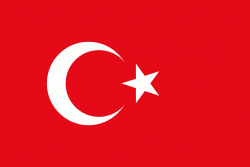Reşadiye
Reşadiye is a district of Tokat located within the Cappadocia land within the Kızılırmak arc in the central part of the Black Sea. It is on the E E80 highway, on the edge of the Kelkit Stream. Reşadiye is surrounded by Ordu in the north, Almus in the south, Niksar and Başçiftlik in the west and Sivas in the southeast. According to the 2020 TUIK data, its total population is 43,870.
Geographically, it is located between 400 31 'north latitudes and 370 06' east longitudes and the highest hill of Reşadiye, established on the banks of the Kelkit River, is Erdem Baba Hill with 2.183 meters. This is followed by Küçük Erdem Hill (2.113 meters), Kabaktepe (2.037 meters), Çal Hill (2.022 meters), Mektep Hill, Tömbül Hill and Lalelik Hill. All of these heights are located in Günüş Mountain. Zinav Lake is located within the boundaries of the district.
Geographically, it is located between 400 31 'north latitudes and 370 06' east longitudes and the highest hill of Reşadiye, established on the banks of the Kelkit River, is Erdem Baba Hill with 2.183 meters. This is followed by Küçük Erdem Hill (2.113 meters), Kabaktepe (2.037 meters), Çal Hill (2.022 meters), Mektep Hill, Tömbül Hill and Lalelik Hill. All of these heights are located in Günüş Mountain. Zinav Lake is located within the boundaries of the district.
Map - Reşadiye
Map
Country - Turkey
 |
|
| Flag of Turkey | |
One of the world's earliest permanently settled regions, present-day Turkey was home to important Neolithic sites like Göbekli Tepe, and was inhabited by ancient civilisations including the Hattians, Hittites, Anatolian peoples, Mycenaean Greeks, Persians and others. Following the conquests of Alexander the Great which started the Hellenistic period, most of the ancient regions in modern Turkey were culturally Hellenised, which continued during the Byzantine era. The Seljuk Turks began migrating in the 11th century, and the Sultanate of Rum ruled Anatolia until the Mongol invasion in 1243, when it disintegrated into small Turkish principalities. Beginning in the late 13th century, the Ottomans united the principalities and conquered the Balkans, and the Turkification of Anatolia increased during the Ottoman period. After Mehmed II conquered Constantinople (Istanbul) in 1453, Ottoman expansion continued under Selim I. During the reign of Suleiman the Magnificent, the Ottoman Empire became a global power. From the late 18th century onwards, the empire's power declined with a gradual loss of territories. Mahmud II started a period of modernisation in the early 19th century. The Young Turk Revolution of 1908 restricted the authority of the Sultan and restored the Ottoman Parliament after a 30-year suspension, ushering the empire into a multi-party period. The 1913 coup d'état put the country under the control of the Three Pashas, who facilitated the Empire's entry into World War I as part of the Central Powers in 1914. During the war, the Ottoman government committed genocides against its Armenian, Greek and Assyrian subjects. After its defeat in the war, the Ottoman Empire was partitioned.
Currency / Language
| ISO | Currency | Symbol | Significant figures |
|---|---|---|---|
| TRY | Turkish lira | ₺ | 2 |
| ISO | Language |
|---|---|
| AV | Avar language |
| AZ | Azerbaijani language |
| KU | Kurdish language |
| TR | Turkish language |















